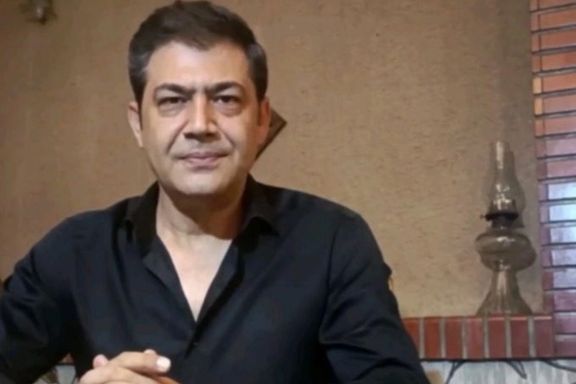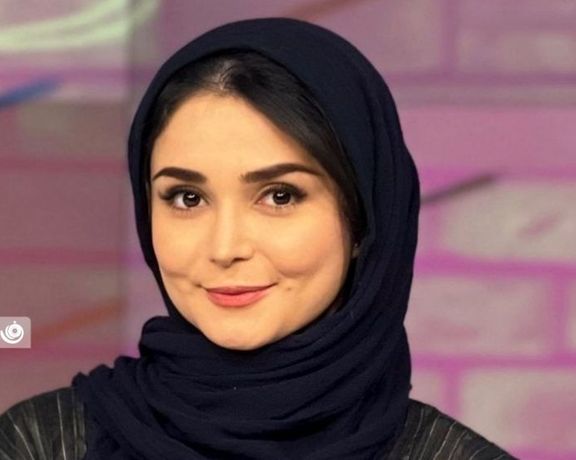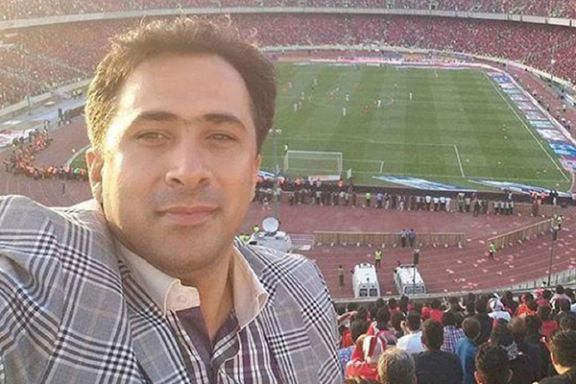TV Presenters Resigning In Support Of Iran Protests

A wave of resignations has started among presenters and hosts at Iran’s state broadcaster in solidarity with the ongoing protests across the country.

A wave of resignations has started among presenters and hosts at Iran’s state broadcaster in solidarity with the ongoing protests across the country.
At least three presenters have resigned in the past few days. Farhad Fakhrbakhsh, who hosted a show about programs of the Islamic Republic’s broadcaster for over four years, announced his resignation on Saturday.

In a video message published on Instagram, he said entertainment activities need peace of mind that no Iranian has at the moment, adding that "the people of Iran are not in a good mood these days."

Kimia Gilani is another host that resigned after bursting into tears on live television when she was talking about Kian Pirfalak, the 10-year-old boy who was killed by security forces who fired at his family car in the city of Izeh in Khuzestan province this week.

Davoud Abedi, a sport reporter who resigned in recent days, is well-known for his energetic presentations. In a message, he said that these days that people are dying on streets and he cannot fake a happy or energetic tone.
Barbod Babai, Mojtaba Pourbakhsh, Peyman Sheikhi, Majid Ghazanfari are among other presenters that have left the state TV since mid-September in support of the protests.
TV football (soccer) commentator and producer Adel Ferdosipour -- one of the most popular public figures in Iran -- rejected the offer by the state broadcaster to do the commentaries on FIFA World Cup 2022, in support of "bereaved Iranians." He was banned and dismissed by the IRIB in 2019 reportedly over pressure by the Revolutionary Guards, but was asked to come back for the World Cup.

Iran’s state broadcaster was not very popular even before the current wave of protests began, but its popularity has declined dramatically in the past two months because it serves as the main mouthpiece of government propaganda that dismisses the protesters as “rioters.”
In October, ‘reformist’ commentator Abbas Abdi said what the state-run television broadcasts is “sheer propaganda." Ironically, when hackers interrupted the state TV news program October 8, playing a short clip, most Iranians found out about it through social media or on foreign-based satellite TV because few were watching the state TV.
IRIB’s penchant for one-sided news has deeply annoyed viewers who currently get their news from social media and Persian-speaking satellite TV channels based in Europe and the United States. The viewers no longer trust the media that belongs to and echoes the voice of a government they have ceased to trust for the same reason: Unilateralism, and justifying the government's often wrong measures and its police brutality in the streets.
This week, the United States designated six leading employees of IRIB. The US first designated IRIB (Islamic Republic of Iran Broadcasting) in 2013, and in 2018 reimposed the move in what then Treasury Secretary Steven Mnuchin said was a part of “the maximum pressure exerted by the United States” after withdrawal from the 2015 nuclear agreement.
In a message attributed to workers of the state broadcaster published on social media in recent days, it is claimed that most of the employees of the IRIB support the antigovernment protests and will help the people in case it falls into the hands of protesters. The message also provided directions on how people can take over the IRIB.